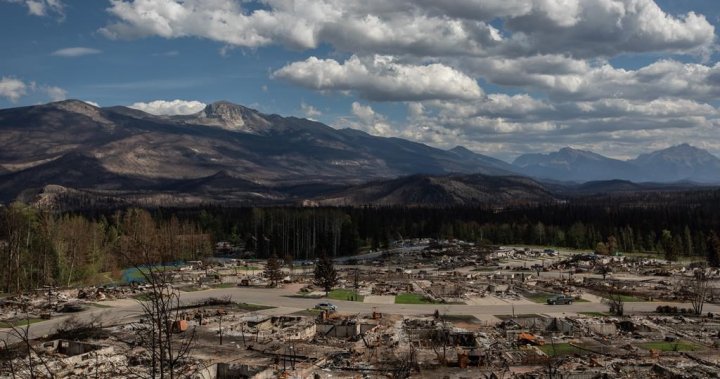The picturesque mountain town of Jasper, nestled within a national park in Alberta, faces a housing crisis precipitated by a devastating wildfire in the summer of 2024. The fire destroyed a third of the town’s buildings, leaving 600 residents displaced. While both the provincial and federal governments have expressed a desire to address the situation, their differing approaches have resulted in a protracted political impasse, leaving the affected residents caught in the middle.
The Alberta government, under Municipal Affairs Minister Ric McIver, has pledged $112 million to build 250 permanent single-family homes. However, the province insists on adhering to standard building codes, including parking and setback requirements, arguing that these regulations are essential for long-term viability. This stance has created a bottleneck, as the province contends that the land prepared by the town, although fully serviced, is insufficient for the type of housing they envision. McIver maintains that the province is ready to act as soon as suitable land is made available, placing the onus on the federal government, which oversees national parks, to provide more space.
In contrast, Parks Canada, the federal agency responsible for Jasper National Park, has opted for a more immediate solution. Recognizing the urgent need for shelter, Parks Canada has initiated the procurement and installation of approximately 220 temporary housing units. They argue that existing land within the town’s boundaries is adequate for interim housing, provided density is considered. This approach clashes with the province’s preference for permanent housing from the outset, further exacerbating the disagreement. The federal government accuses the province of politicizing the disaster, arguing that collaboration, rather than political posturing, would expedite the recovery process.
The crux of the disagreement lies in the long-term vision for Jasper. Expanding the town’s boundaries to accommodate the province’s preferred housing plan would require an act of Parliament, a time-consuming process. Moreover, such expansion would alter the character of the town, a prospect that residents and the municipality are keen to avoid. Jasper residents, weary of the political wrangling, emphasize that the challenges related to expanding the townsite are not unique to the post-fire situation and have always been a consideration given the town’s location within a national park.
Caught in the crossfire, Jasper residents express frustration and disappointment over the politicization of their plight. They acknowledge the complexities inherent in their unique situation – a town within Alberta yet under federal jurisdiction – and urge both levels of government to prioritize their needs over political maneuvering. The residents express gratitude for Parks Canada’s efforts to provide interim housing, while simultaneously calling on the Alberta government to abandon its rigid stance and collaborate with the federal government to find a comprehensive solution. The urgency of the situation is underscored by the impending tourist season, with residents currently housed in hotels facing eviction to make way for summer visitors.
The situation remains unresolved, with both the province and the federal government claiming a willingness to assist, yet neither appearing willing to compromise. While Parks Canada’s interim housing initiative offers a temporary reprieve for some residents, the long-term housing needs of the community remain unmet. The residents of Jasper, likened to “children of a messy divorce,” are left to grapple with the uncertainty of their future, hoping for a resolution that prioritizes their well-being over political agendas. The clock is ticking, and the need for collaborative action grows more pressing with each passing day, as the residents strive to rebuild their lives and reclaim their sense of community. The future of Jasper hinges on the ability of the provincial and federal governments to bridge their differences and work together to provide the necessary support for this unique mountain town.

